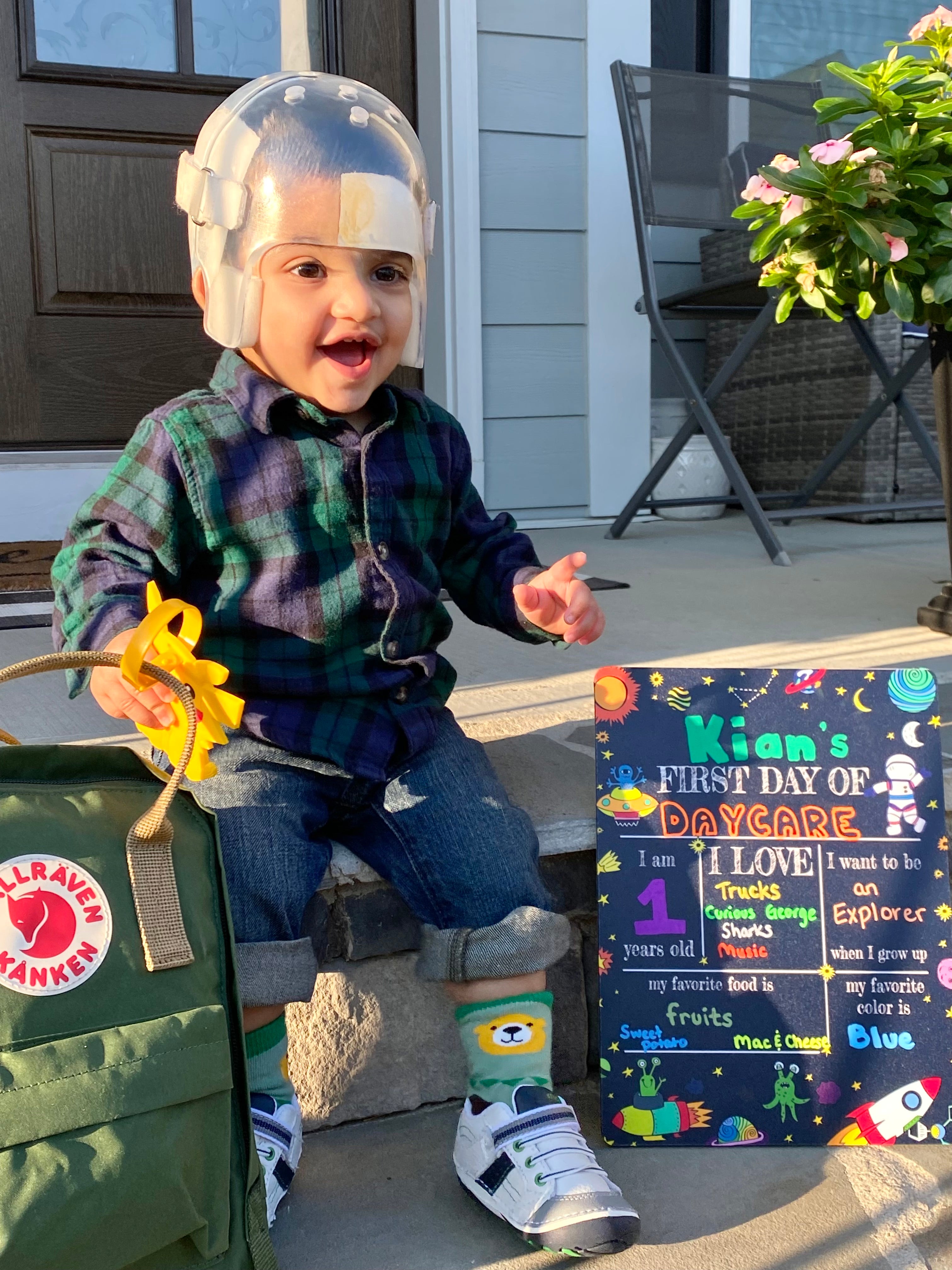Craniofacial abnormalities can present unique challenges for children and their families, affecting not only physical appearance but also their emotional well-being. Supporting a child with these conditions involves fostering confidence and self-esteem while developing coping strategies for both the child and their parents.
As a mom of a cranio warrior, my own fears of bullying and acceptance were hard to cope with especially when my son was about to start school. It help manage my fears, I used several methods to make his school transition seamless including building his confidence.
Here’s what my family and I did to help build a positive self-image and manage the associated challenges of craniofacial abnormalities effectively.
1. Encourage Open Communication
Open and honest communication is crucial. Encourage your child to express their feelings and concerns about their condition especially if they are aware of their condition. Validate their emotions and provide reassurance. Let them know that their worth is not defined by their appearance but by their character and abilities.
2. Promote Positive Self-Talk
Teach your child to practice positive self-talk. Help them focus on their strengths and achievements rather than their appearance. Positive affirmations can be a powerful tool in building self-esteem. Celebrate their successes and remind them of their unique qualities.
3. Foster a Supportive Environment
Surround your child with a supportive and understanding network of family, friends, and teachers. Positive reinforcement from people who care can bolster their confidence. Encourage inclusive activities where they can shine and showcase their talents and interests.
4. Involve Your Child in Their Care
Involving your child in their medical care can help them feel more in control and less anxious about their condition. Explain procedures in age-appropriate terms and involve them in decision-making processes when possible. This approach fosters a sense of empowerment and resilience from an early age.
5. Seek Professional Support
Consider seeking support from professionals, such as psychologists or counselors, who specialize in helping children with craniofacial conditions. Therapy can provide your child with coping mechanisms and a safe space to explore their feelings. Support groups can also offer valuable connections with others facing similar challenges.
6. Educate and Advocate
Educate your child about their condition and how to respond to questions or comments from others. Role-playing different scenarios can help them feel prepared and confident. As a parent, advocate for your child’s needs in educational settings and social situations to ensure they receive appropriate support and respect.
7. Model Positive Behavior
Children learn by observing their parents. Model positive behavior and self-acceptance in your own life. Show confidence and self-love, and your child is likely to mirror these attitudes. Demonstrate how to handle challenges with grace and resilience.
8. Encourage Participation in Activities
Encourage your child to participate in activities they enjoy and excel at. Whether it’s sports, arts, or academics, engaging in activities where they can achieve success helps build self-esteem and provides a sense of accomplishment.
9. Build a Strong Parent-Child Bond
Strengthen your bond with your child through quality time, unconditional love, and support. A strong, trusting relationship can provide emotional security and reinforce their sense of worth and identity.
10. Practice Patience and Understanding
Coping with craniofacial abnormalities is a journey that involves both triumphs and setbacks. Practice patience and understanding as your child navigates their path. Celebrate their progress and provide ongoing encouragement and support.
By employing these strategies, you can help build confidence and self-esteem in your child while providing effective coping mechanisms for both them and yourself. Remember, every child is unique, and fostering a supportive and loving environment is key to helping them thrive.



Leave a comment